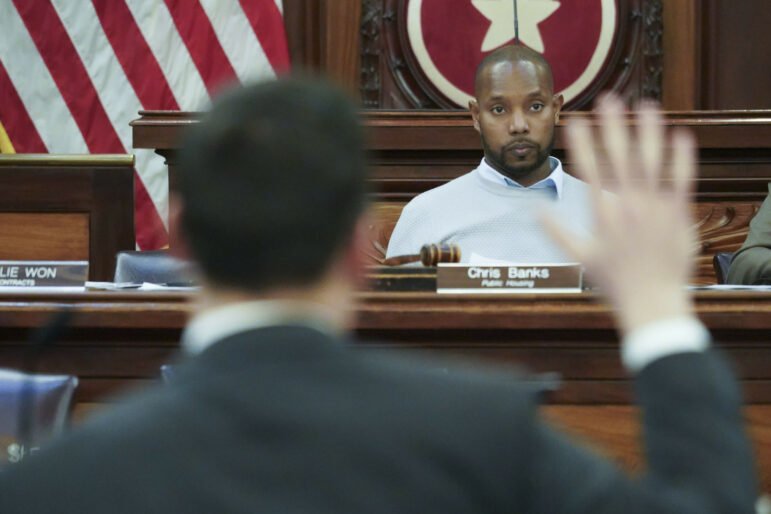When it comes to handing out housing money, Governor George Pataki serves the bacon upstate and leaves Gotham the gristle. New York City may be home to 60 percent of the state’s poor–and 80 percent of its homeless–but you wouldn’t know that from last week’s announcement of state funding for low- to moderate-income housing money projects.
Pataki, who chooses how to spend low income housing tax credit and Housing Trust Fund cash, gave New York City barely one quarter of the $117 million total.
“It’s atrocious,” said Brad Lander, director of the Fifth Avenue Committee, whose organization was among the city agencies to receive money. “We should be getting at least 50 percent, when you consider the city’s poverty rate and our level of need.”
By comparison, Pataki was very generous to the man who tried to kill the city’s rent regulation system last summer, Republican State Senate Majority leader Joseph Bruno. According to a City Limits analysis, the state is pumping at least $8.7 million in affordable housing cash into Bruno’s solidly middle-class upstate district, which includes Rensselaer and Saratoga counties. New York City, with nearly half the state’s population, got a total of $29.4 million.
Bruno has taken a big piece of the newly-created $9 million Senior Housing Initiative: projects in Rensselaer and Saratoga ate up $4.2 million, while New York City only got $960,000.
Even though it has the fifth-lowest poverty rate of New York’s 62 counties and a racetrack that has long attracted the state’s Knickerbocker elite, Saratoga will soon receive a dose of government housing support rarely seen outside of Appalachian shanty towns. The sleepy 6,687-person Village of Hoosick Falls, with a poverty rate two points lower than the county’s already-modext 5.9 percent, received $340,000 in low-income HOME funds. Nearby Malta will soon get 82 new units of senior housing; $1.6 million will go to towns in Bruno’s district that were hit hard by last winter’s ice storms.
“The Senator is very much concerned about affordable housing upstate as well as in the rest of the state,” said a Bruno spokesperson.
If any New York City politician did well under the Pataki plan, it was Brooklyn Democrat Vito Lopez, chairman of the state Assembly’s housing committee. Lopez, whose bid to hike the state’s housing budget was vetoed by Pataki in the spring, still managed to deliver $2.5 million to his longtime favorite, the Ridgewood-Bushwick Senior Citizen Center.
In all, the city will see only $6.1 million of the $24 million in the Low- Income Housing Trust Fund, which is used to rehab dilapidated buildings. City nonprofits will receive $5.3 million of of the $16.6 million slated for the state’s low-income tax credit program.








